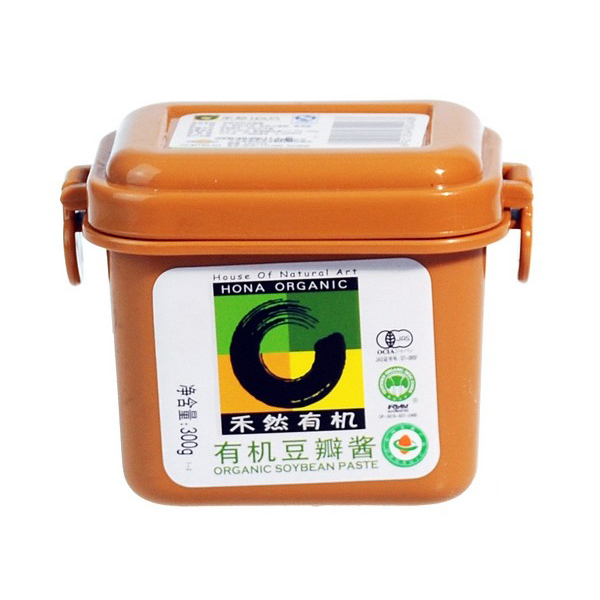

It can be added to stir-fries, stews, and soups. It can taste pungent depending on your taste bud. Doenjang and ganjang are secondary fermented soybean products from meju (primary fermented product) following a complex fermentation process that separates the products into solid (doenjang) and liquid (ganjang) states. Similar to hot pepper paste (Gochujiang), fermented soybean paste is a very thick and concentrated condiment. Do you see the difference? Is doenjang very pungent? Whereas in miso, microorganisms are added to produce fermentation. Doenjang is a fermented bean paste, meaning natural probiotics are produced by the paste itself. 10 g apple, cored and cut into small pieces. 2 Tbsp walnuts (or your choice of nuts and seeds) this will add nuttier flavor and creamier texture. It’s eaten as a condiment for vegetables and for dipping. 2 Tbsp gochujang (Korean chili paste) 2 Tbsp toasted sesame oil. You need Korean doenjang to make doenjang stew just like you need miso to make miso soup!! Doenjang and miso are both made with soybeans and both are great source of probiotics. Soybean paste is commonly used to produce soybean soup and it can also be used as a relish. Yun Hai’s diverse line of soy paste includes fun flavors like ghost pepper, and miso, though the plain one is most traditional.
#SOYBEAN PASTE CODE#
Please input your area zip code to check whether we. They look, taste, smell and feel different from miso. Due to Coronavirus pandemic, there are limitations in delivery and we provide delivery in specific areas. Is doenjang different from miso?ĭoenjang is much different from miso. Wang Soy Bean Paste Fermented 500g 13.3 g 10.0 g 2 Korea Ingredients: soy bean, water, wheat flour, salt, preservatives (E202). At home, Choi suggests using a small amount of doenjang in a dressing with sesame oil, garlic, and. It is prepared by Kisoondo, which has a 360-year tradition of high. Choi adds doenjang to the dressings for various veggie dishes, like a bok choy and spinach side. All Natural Korean Doenjang (Soy Bean Paste) Imported From Korea Kosher Certified Doejang Fermented Soybean Paste 8.1oz Koko Doejang is a paste used in. The base stock can also affect the flavor since you can have a beef stock, pork stock, anchovy stock, or vegetable stock. This premium soybean paste is made from soybeans fermented in jars for over 6 months. Adding gochujang, gochugaru or sliced Korean peppers will also create different flavoring. Some prefer more meat than others, while some prefer more vegetables added into the stew. The variation will continue first due to the doengjang paste flavor itself and what you add into the stew. (Homemade versions are more pungent than the store-bought ones fyi.) Every Korean household makes their stew differently. Not all Doengjang Jjigae are alike, just like every doeng jang is different.
#SOYBEAN PASTE HOW TO#
I will show you how to bring out the deep flavors of Korean doenjang using a combination of rich dashi stock and fresh veggies! Try this simple home comfort recipe today! Doeng jang jjigae has flavor variations Vatten, soja 25,1%, vetemjöl, salt, matlagning risvin, vete, jästa sojabönpulver 1,2%, smak förstärkare (E621), senapspulver, koji (korn).This Korean soybean paste stew is a perfect option for any day you are craving something comforting and homey. It is also a rich source of protein, dietary fiber, and essential amino acids, making it a popular ingredient in vegetarian and vegan diets.

The paste contains both ground and whole fermented soybeans, and it is slightly similar to natto in its appearance. Cheonggukjang is a type of fermented soybean paste that originates from Korea, and it dates back to 683 AD ( 3 ). It is similar to Japanese miso paste, but doenjang has a stronger, more pungent flavor and is often used in heartier, more savory dishes. These include miso, sweet bean sauce, gochujang, doubanjiang, Korean soy sauce, hoisin sauce, chee hou sauce, fermented black beans, and sweet soybean paste. Cheonggukjang: a stew made from fermented soybeans.

Ground soybeans are naturally fermented for added savory flavor which eventually turns into a delicious authentic Korean soybean paste.ĭoenjang is a versatile ingredient that is used in a variety of Korean dishes, including soups, stews, marinades, and dipping sauces.


 0 kommentar(er)
0 kommentar(er)
